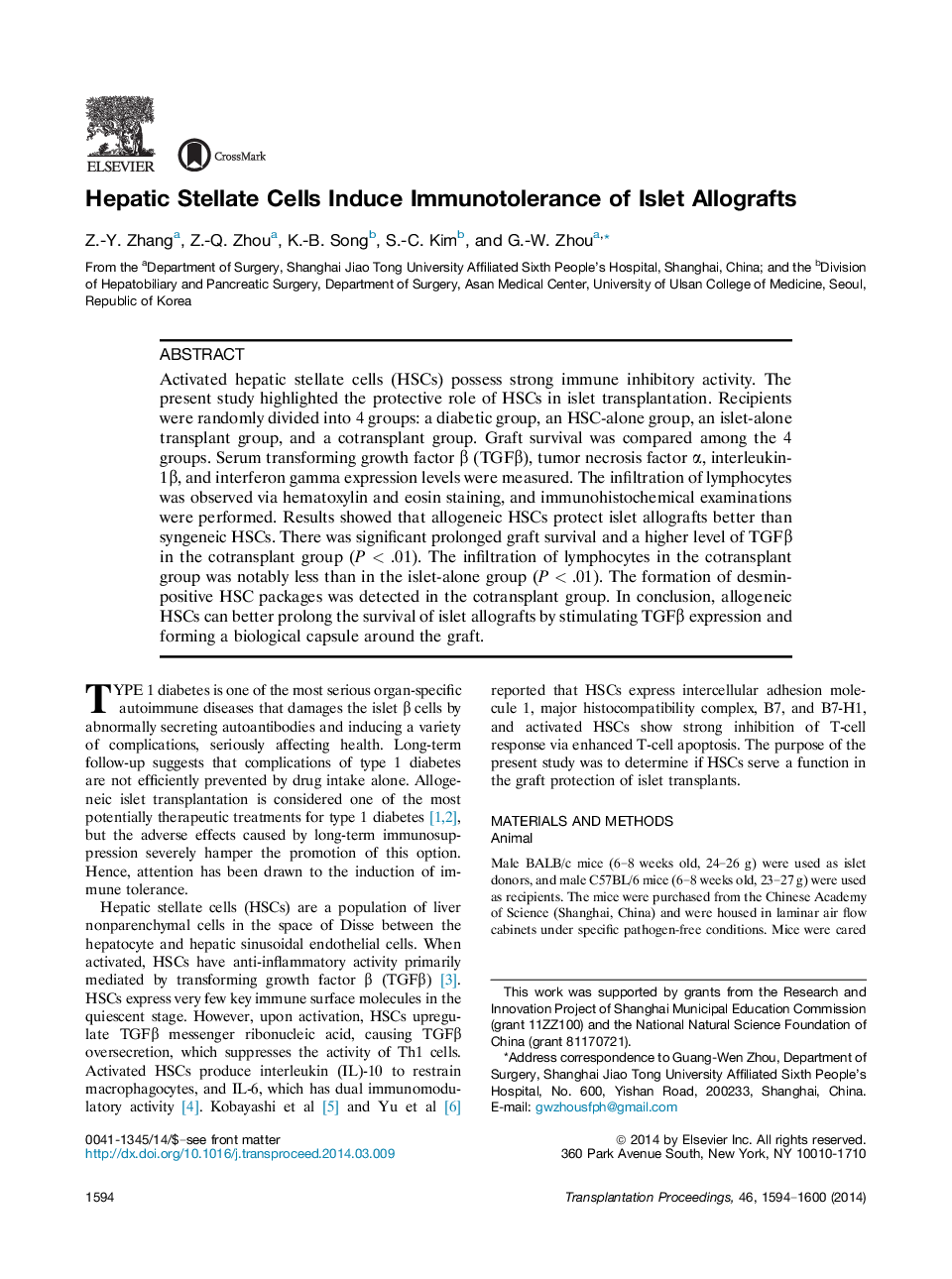| Article ID | Journal | Published Year | Pages | File Type |
|---|---|---|---|---|
| 6246334 | Transplantation Proceedings | 2014 | 7 Pages |
Abstract
Activated hepatic stellate cells (HSCs) possess strong immune inhibitory activity. The present study highlighted the protective role of HSCs in islet transplantation. Recipients were randomly divided into 4 groups: a diabetic group, an HSC-alone group, an islet-alone transplant group, and a cotransplant group. Graft survival was compared among the 4 groups. Serum transforming growth factor β (TGFβ), tumor necrosis factor α, interleukin-1β, and interferon gamma expression levels were measured. The infiltration of lymphocytes was observed via hematoxylin and eosin staining, and immunohistochemical examinations were performed. Results showed that allogeneic HSCs protect islet allografts better than syngeneic HSCs. There was significant prolonged graft survival and a higher level of TGFβ in the cotransplant group (P < .01). The infiltration of lymphocytes in the cotransplant group was notably less than in the islet-alone group (P < .01). The formation of desmin-positive HSC packages was detected in the cotransplant group. In conclusion, allogeneic HSCs can better prolong the survival of islet allografts by stimulating TGFβ expression and forming a biological capsule around the graft.
Related Topics
Health Sciences
Medicine and Dentistry
Surgery
Authors
Z.-Y. Zhang, Z.-Q. Zhou, K.-B. Song, S.-C. Kim, G.-W. Zhou,
